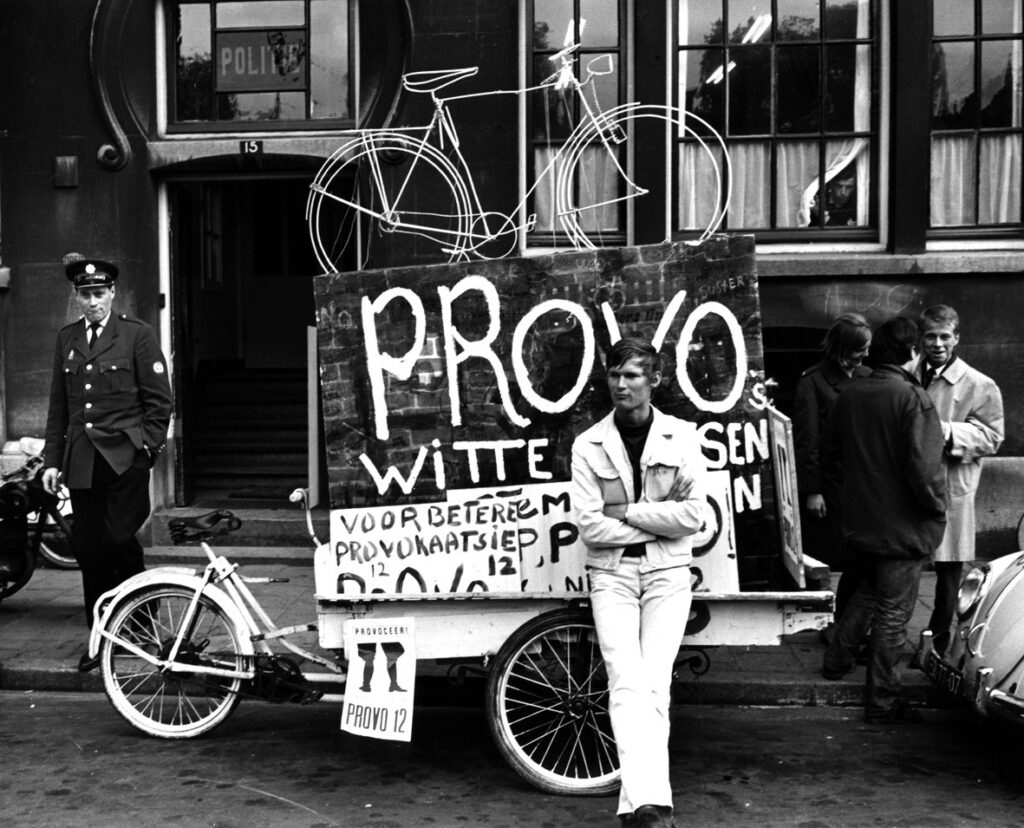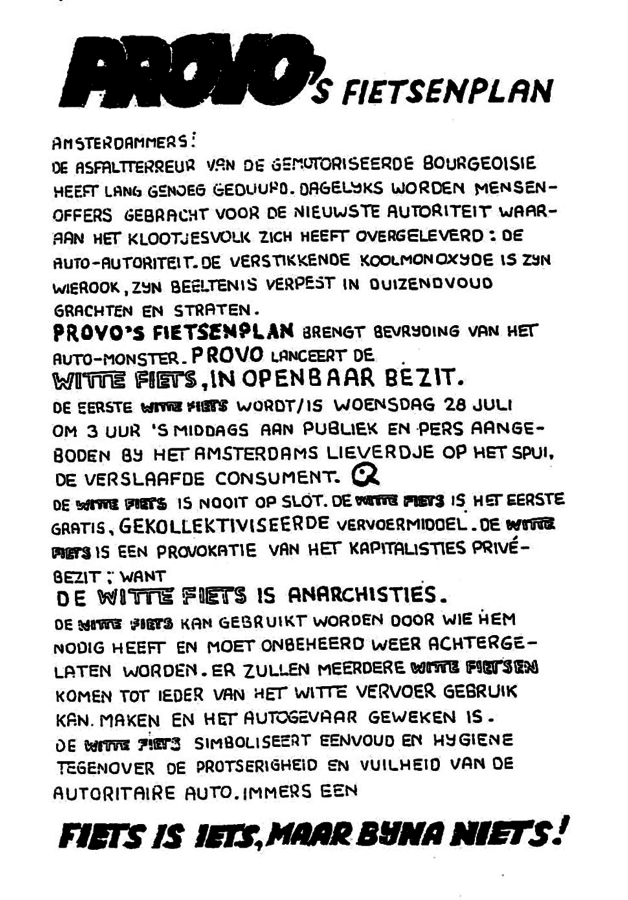The anti-smoke magician
As Robert Jasper Grootveld showed in the 1960s, by becoming the anti-smoke magician he took on the fight against smoking and the upcoming addiction to consumption led by advertisement. Not by telling people not to smoke, but actually by admitting that he too was addicted, ridiculing these addictions, contradicting himself and declaring that he was just smoking all surplus cigarettes so others wouldn’t have to. Through acts such as this, he inspired people that society didn’t have to be that way and that they were actually able to make a change. This led to the formation of Provo, an anarchistic collective actively protesting, campaigning, and inspiring people to demand change around Europe.

The most interesting project that the Provo’s managed to put out was the White Bicycle Plan (Het Wittefietsenplan). In order to protest against the upcoming asphalt-terror of the motorized bourgeoisie in Amsterdam at that time, they came up with the white bicycle, a plan to provide the whole city of Amsterdam with white bicycles that were available to anyone. It was supposed to be the collective property of all of those living in the city, freeing them from the terror of the car.
It symbolized the simplicity and hygiene of the bicycle in contrast to the automobile. This is where I think the quality of this project is; everybody could participate and ‘‘protest’’ by using this simple bicycle. The concepts used were familiar for those involved and could easily be shared with others in an understandable way.
Too bad the first on was immediately impounded by the police after being released to the public, as it had no owner and was thus ‘‘trash’’. Today, the concept lives on in different pay-to-use services across cities worldwide.

